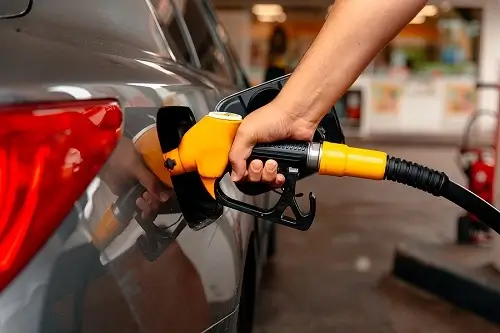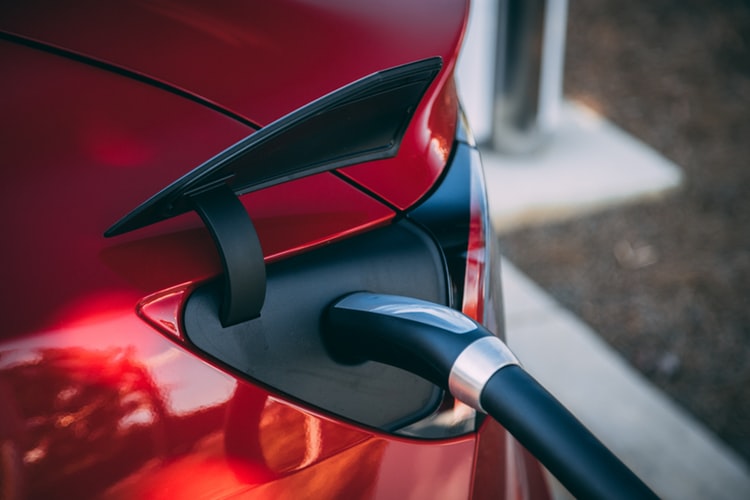Advanced Fuel Efficiency Techniques In the ever-evolving landscape of automotive technology and environmental awareness, the pursuit of Fuel Efficiency Optimization remains at the forefront of our collective consciousness. The desire to maximize fuel efficiency isn’t limited to penny-pinching; it’s a proactive step towards reducing our carbon footprint and embracing a more sustainable future. In this comprehensive guide, we will delve into a realm of Enhanced MPG Strategies, Proven Fuel Saving Methods, and Advanced Fuel Efficiency Techniques to empower you with the knowledge and techniques necessary to elevate your fuel efficiency to the next level.
Unraveling the Science of Fuel Efficiency
To embark on a journey of fuel efficiency enhancement, one must first comprehend the intricate web of factors that influence this critical aspect of vehicle performance. Fuel efficiency is not a singular trait but a multi-faceted interplay of various elements within a vehicle’s design and operation. Key components that contribute to fuel efficiency include:
- Aerodynamics: The art of minimizing air resistance is a crucial element in the quest for better fuel efficiency. Sleek, streamlined designs are engineered to reduce the drag coefficient, enabling vehicles to slice through the air with minimal resistance.
- Engine Efficiency: The heart of any vehicle, the engine, holds a substantial influence over fuel efficiency. Modern engines incorporate an array of advanced technologies, such as direct injection, turbocharging, and variable valve timing, aimed at extracting maximum power from the least amount of fuel.
- Weight Management: The weight of a vehicle plays a significant role in its energy consumption. Lighter vehicles demand less energy to move, which results in lower fuel consumption. Contemporary engineering utilizes lightweight materials to reduce overall vehicle weight.
- Tire Technology: Tire selection and maintenance are critical to achieving optimal fuel economy. Low rolling resistance tires minimize the energy required to keep a vehicle in motion.
- Transmission Efficiency: Advanced transmissions, especially automatic ones with multiple gears, are designed to shift seamlessly into the most efficient gear for maintaining a steady speed.
Now, let’s delve into the advanced techniques that will unlock your vehicle’s full fuel efficiency potential.
Mastering Enhanced MPG Strategies
1. Refining Your Driving Habits
Your driving style can significantly impact your vehicle’s fuel efficiency. By adopting these driving techniques, you can make a substantial difference in your vehicle’s fuel economy:
- Smooth Acceleration and Braking: Abrupt acceleration and hard braking consume more fuel. Embrace a smoother, gradual driving style to maintain a steady speed and conserve energy.
- Cruise Control: On extended highway journeys, engage cruise control to maintain a constant speed. It outperforms human throttle modulation in terms of fuel efficiency.
- Traffic Anticipation: Anticipate traffic flow by looking ahead to avoid unnecessary stops and starts, particularly in congested urban areas. This practice can dramatically reduce fuel consumption.
2. Prioritizing Vehicle Maintenance
Regular vehicle maintenance is pivotal to maintaining fuel efficiency. Neglecting your vehicle can lead to increased fuel consumption. Pay meticulous attention to these crucial maintenance tasks:
- Air Filter Replacement: A clogged air filter restricts airflow to the engine, forcing it to work harder and consume more fuel. Regular air filter replacement ensures optimal engine performance.
- Spark Plug Care: Faulty spark plugs can lead to incomplete combustion, resulting in increased fuel consumption. Regularly inspect and replace spark plugs as needed.
- Tire Health: Proper tire maintenance, including regular inflation and alignment checks, significantly influences your vehicle’s fuel economy. Under-inflated tires increase rolling resistance, while misaligned tires create unnecessary drag.
3. Embracing Modern Technological Advancements
The automotive industry continually introduces cutting-edge technologies aimed at enhancing fuel efficiency. These innovations include:
- Hybrid and Electric Vehicles: Hybrid vehicles seamlessly combine traditional internal combustion engines with electric motors to maximize fuel efficiency. Electric vehicles rely solely on electricity, eliminating the need for fuel.
- Start-Stop Systems: Many modern vehicles are equipped with start-stop systems that automatically shut off the engine when idling and restart it when you press the accelerator. This feature is particularly advantageous in stop-and-go traffic.
- Active Aerodynamics: Some vehicles are fitted with active aerodynamic features, such as adjustable spoilers, which optimize airflow and reduce drag for improved fuel economy.
4. Exploring Fuel Economy Accessories
Aftermarket products and accessories are available to further amplify your vehicle’s fuel efficiency:
- Aerodynamic Enhancements: Consider installing accessories such as wind deflectors and streamlined roof boxes to reduce aerodynamic drag.
- Fuel Additives: Some fuel additives claim to clean engines and enhance combustion, leading to better fuel efficiency. When selecting fuel additives, make sure to choose reputable products.
- Eco-Friendly Tires: Specialized eco-friendly tires are designed with low rolling resistance to improve fuel economy.
Mastering Enhanced MPG Strategies
1. Refining Your Driving Habits
Your driving style can significantly impact your vehicle’s fuel efficiency. By adopting these driving techniques, you can make a substantial difference in your vehicle’s fuel economy:
- Smooth Acceleration and Braking: Abrupt acceleration and hard braking consume more fuel. Embrace a smoother, gradual driving style to maintain a steady speed and conserve energy.
- Cruise Control: On extended highway journeys, engage cruise control to maintain a constant speed. It outperforms human throttle modulation in terms of fuel efficiency.
- Traffic Anticipation: Anticipate traffic flow by looking ahead to avoid unnecessary stops and starts, particularly in congested urban areas. This practice can dramatically reduce fuel consumption.
2. Prioritizing Vehicle Maintenance
Regular vehicle maintenance is pivotal to maintaining fuel efficiency. Neglecting your vehicle can lead to increased fuel consumption. Pay meticulous attention to these crucial maintenance tasks:
- Air Filter Replacement: A clogged air filter restricts airflow to the engine, forcing it to work harder and consume more fuel. Regular air filter replacement ensures optimal engine performance.
- Spark Plug Care: Faulty spark plugs can lead to incomplete combustion, resulting in increased fuel consumption. Regularly inspect and replace spark plugs as needed.
- Tire Health: Proper tire maintenance, including regular inflation and alignment checks, significantly influences your vehicle’s fuel economy. Under-inflated tires increase rolling resistance, while misaligned tires create unnecessary drag.
End ot the line : Advanced Fuel Efficiency Techniques
The path to superior fuel efficiency is a multifaceted journey that weaves together vehicle design, driving habits, maintenance, and advanced technologies. By integrating these elements into a cohesive strategy, you can unlock the secrets to Fuel Efficiency Optimization and embrace a world of Enhanced MPG Strategies and Advanced Fuel Efficiency Techniques. These techniques are the key to achieving Advanced Fuel Efficiency Techniques, leading to an elevated level of vehicle performance and financial savings.
Whether you are an automotive enthusiast seeking to maximize your vehicle’s fuel efficiency or a conscientious driver looking to economize at the pump, the time for action is now. By implementing the strategies presented in this guide, you can unlock the full potential of your vehicle’s fuel efficiency and experience the satisfaction of improved performance and financial savings. Don’t wait; embark on the path to fuel efficiency mastery today.






